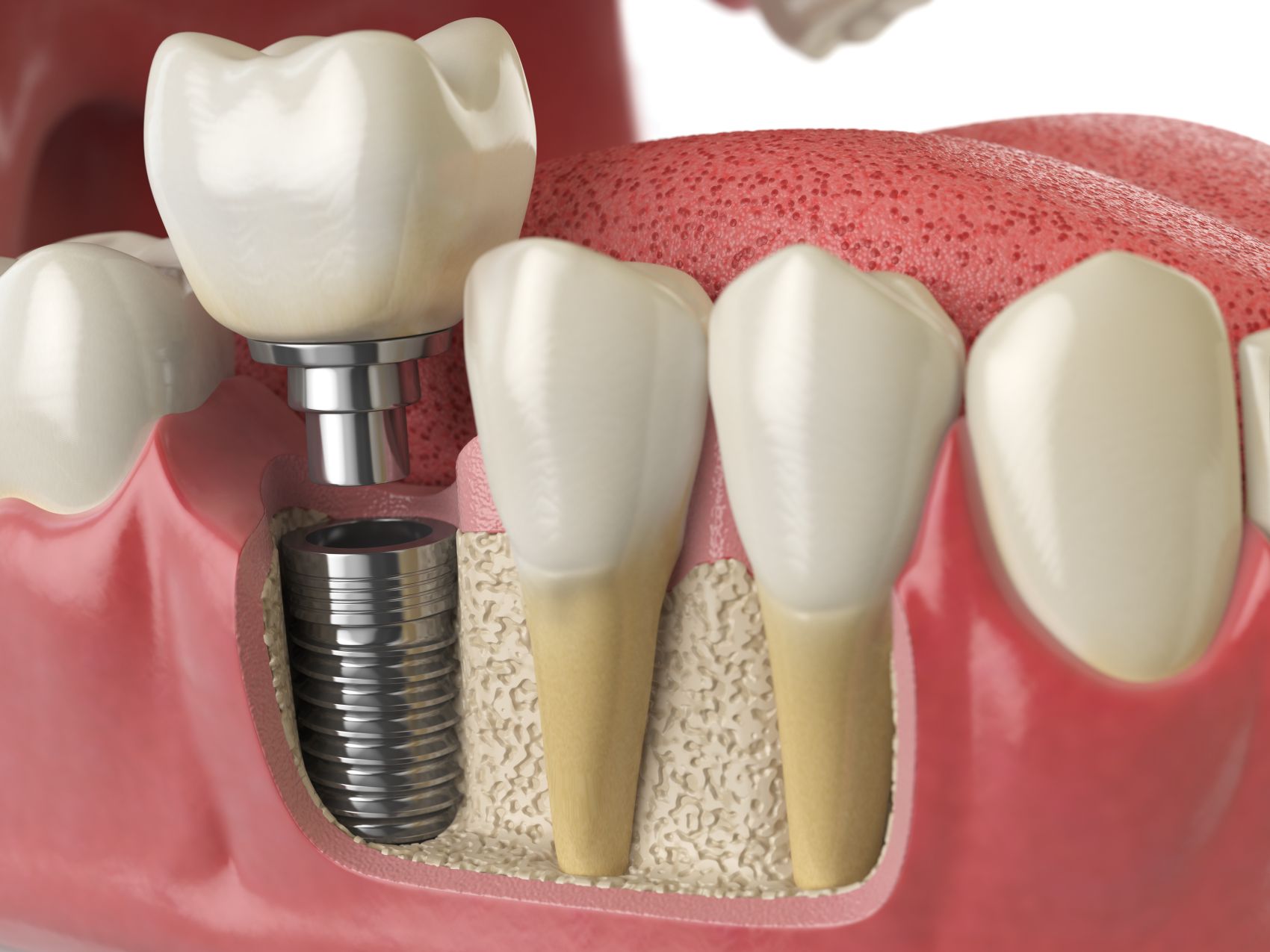
More than 500,000 people receive dental implants each year. If you’re ready to fill in those gaps in your smile, below are some details that can help you determine your eligibility for implant surgery.
First, your dentist will analyze your bone density to determine whether it’s strong enough for surgery. Tooth implants consist of a crown, abutment and a titanium screw to fix the implant in place. Implants are then fused to your jawbone to ensure they’re firmly anchored. This means your bone support must be strong enough to withstand these implants. The fusing process typically takes a few months to fully complete. Patients must be mindful about maintaining good dental hygiene throughout the entire process.
If you’ve been diagnosed with gum disease, your dentist may postpone your surgery until your gums are properly treated. Remember, tooth implants fuse to your jawbone and weak gums may cause implants to shift, move or fall out. Strong gums are key to keeping your new implants in place. To reverse the effects of gum disease, visit a periodontist or ask your dentist for a recommendation to receive proper care before considering implants. Even if you don’t have advanced gum disease, remember to maintain excellent oral hygiene before considering or undergoing surgery. Daily brushing, flossing and even mouthwash are key to maintaining healthy gums.
Jaw clenching, or bruxism, can result from stress, anxiety, sleep, hyperactivity or a number of other causes. If you have the tendency to clench your jaw, now is the time to seek treatment, if you’re considering dental implants in the future. Bruxism can fracture your teeth if not properly managed and that can directly affect the success rate of your dental implants. The following tips can help reduce jaw clenching:
Be mindful of your clenching throughout the day and, when you find your jaw clenching, be sure to relax your face.
Your dentist may also consider your overall wellness prior to proceeding with dental implants. Since implants are a surgical procedure, the healthier you are overall, the more likely your implants will remain strong and intact for years to come. Be prepared for your dentist to ask you the following types of questions during your initial pre-screening:
The answers to these questions are key, because some or all of these things can potentially weaken your gum tissue and bone density.
Dental implant surgery can be performed by any board-certified, licensed dentist who adheres to the standard best practices for tooth replacements. Dentists trained in jawbone surgery can also perform this procedure. Dentists and technicians will often work together to anchor your dental implants into your jawbone and fuse their crowns.
Dental implants can provide you with the confidence you need to smile again, eat without worry, maintain strong, natural-looking teeth for a lifetime.
Let’s recap what you’ll need to consider a successful dental surgery:
If you feel you may be a good candidate for dental implant surgery and are ready to explore next steps, contact us to discuss the right implant treatment for you.